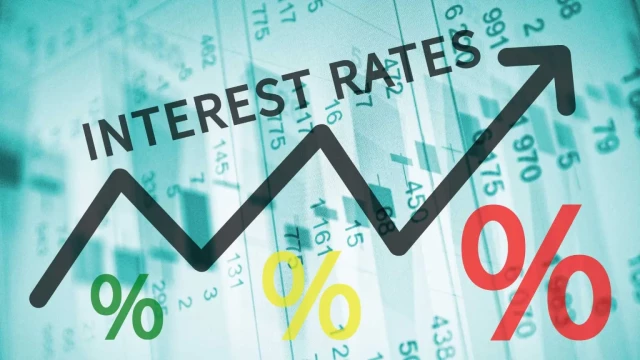Nigeria's inflation rate fell to its lowest level in six months in August, prompting Nigeria's central bank to halt its unprecedented tightening cycle before the meeting last week, according to Bloomberg.
The National Bureau of Statistics said in a statement posted on its website on Monday that consumer prices rose 32.2% from 33.4% in July.
This is in line with the estimate of nine economists in a Bloomberg survey.
The slowdown stems from the impact of inflation on prices and the temporary removal of fuel subsidies implemented a year ago.
The measures are part of the reforms introduced by President Bola Tinubu after he assumed office in May 2023 to attract investors, improve liquidity, reduce taxes and budget pressure.
Data collection was completed before mid-August, so it did not capture the impact of the 45% increase in gasoline prices in early September that drove up transportation costs.
The slowdown raises the possibility that policymakers will end a tightening cycle that has raised interest rates from 11.5% to 26.75% in just two years.
This will also give the Committee on Monetary Policy, which will announce its decision on September 24, time to assess the impact of the new currency differences, the severe floods in northern Nigeria and rising of oil prices for inflation.
Food inflation slowed to 37.5% in August from 39.5% in the previous month. Core price growth, excluding agricultural products and energy, rose to 27.6% from 27.5%.
Higher corn yields and a six-month supply freeze contributed to the slowdown in price increases.
CBN may halt interest rates hike — Report
Nigeria's inflation rate fell to its lowest level in six months in August, prompting Nigeria's central bank to halt its unprecedented tightening cycle before the meeting last week, according to Bloomberg.
The National Bureau of Statistics said in a statement posted on its website on Monday that consumer prices rose 32.2% from 33.4% in July.
This is in line with the estimate of nine economists in a Bloomberg survey.
The slowdown stems from the impact of inflation on prices and the temporary removal of fuel subsidies implemented a year ago.
The measures are part of the reforms introduced by President Bola Tinubu after he assumed office in May 2023 to attract investors, improve liquidity, reduce taxes and budget pressure.
Data collection was completed before mid-August, so it did not capture the impact of the 45% increase in gasoline prices in early September that drove up transportation costs.
The slowdown raises the possibility that policymakers will end a tightening cycle that has raised interest rates from 11.5% to 26.75% in just two years.
This will also give the Committee on Monetary Policy, which will announce its decision on September 24, time to assess the impact of the new currency differences, the severe floods in northern Nigeria and rising of oil prices for inflation.
Food inflation slowed to 37.5% in August from 39.5% in the previous month. Core price growth, excluding agricultural products and energy, rose to 27.6% from 27.5%.
Higher corn yields and a six-month supply freeze contributed to the slowdown in price increases.




















